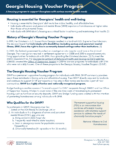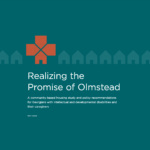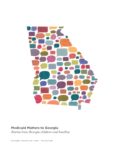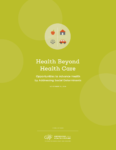- Home
- >
- Our Priorities
- >
- Building a Healthier Georgia
- >
- Healthy Housing
Healthy Housing
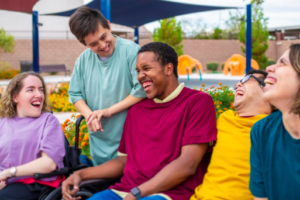
Housing is a basic necessity that is deeply and inextricably tied to a person’s health. In order to live healthy lives, Georgians need stable, affordable housing that is safe, free from health hazards (such as mold and pests), and located in areas where they can easily access nutritious foods and reliable public transportation. For Georgians to reach their highest levels of health, their housing also needs to be located in areas where it is safe to spend time outside (i.e., free from violence, pollution, and other potential risks) and where they can easily engage with their community members to support social and mental health needs.
Because of long-standing economic and housing inequalities in our laws and policies, these Georgians are most likely to suffer the health consequences related to poor or inadequate housing:
- Black & Hispanic Georgians;
- Families with young children;
- People with disabilities;
- Seniors; and
- Other low-income households.
Disability and Housing
Georgians with a disability are at increased risk for unstable, unsuitable, and unhealthy housing. People with disabilities make up 17% of extremely low-income renters, which means they need even more financial support, such as federal housing vouchers. Using a housing voucher alongside needing specialized access, mobility, and support services makes it extremely difficult for Georgians with disabilities to find affordable housing that is suitable for their needs. They are also more likely to live on a fixed income, meaning they have no flexibility when rents increase and must also balance paying for other needs such as food and medical care.
Housing for Georgians with Developmental Disabilities
Georgians for a Healthy Future partnered with the Georgia Council on Developmental Disabilities to grow affordable, accessible, healthy housing options for all Georgians. Through this project, GHF and the project’s housing leadership group surveyed more than 1600 Georgians with developmental disabilities and caregivers about their housing experiences, preferences, and needs. We also interviewed experts about promising and best practices in state housing policies and practices to better understand Georgia’s future policy options.
The final product of this project is a report, Realizing the Promise of Olmstead: A housing study & policy recommendations, that contains the research results and policy recommendations so that all stakeholders - across focus areas - can build a shared understanding of policy and system changes needed in Georgia to improve access to affordable, accessible, and preferred housing for Georgians with disabilities, including developmental disabilities.
Georgians for a Healthy Future will be continuing this important work over the course of the next year by supporting and mobilizing Georgians with developmental disabilities and their loved ones to tell their stories to state leaders and advocate for policy solutions.
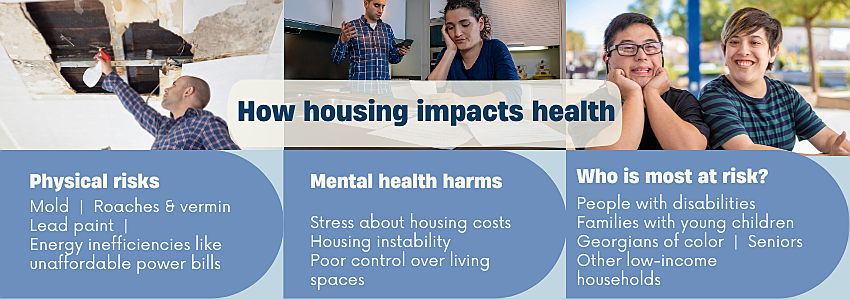
Resources (7 items) Go to Library
